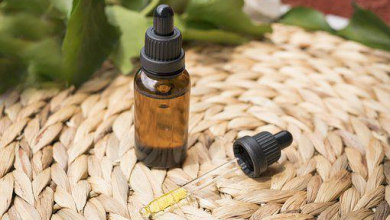How does CBD help to Deal with PTSD

PTSD has come a long way in terms of public knowledge and awareness. However, many people don’t understand how serious it can be or what symptoms they live with its face. About 15 million of the US population experience Post-Traumatic Stress Disorder annually. Those dealing with it know how it can make daily their lives extremely challenging. Doctors often prescribe antidepressants and sleeping pills to reduce PTSD symptoms as there is no effective cure. But luckily, accumulative studies show that CBD oil may alleviate symptoms like anxiety, depression, and stress. Here is a look at how CBD helps to deal with PTSD symptoms and can prove to be a therapeutic method in the future.
Table of Contents
1. Anti-inflammatory Effect
CBD has been proven to be an effective anti-inflammatory medication, which means that it can provide relief from the kind of chronic pain often associated with PTSD. However, even though traditional medicines are available to help treat muscle spasms, they may come with unpleasant side effects like gastrointestinal problems and nausea. By contrast, CBD is considered perfectly safe for use because it’s non-addictive with no known potential for abuse or overdose.
2. Improved Brain Function
Evidence suggests CBD may improve both brain function and memory by repairing damage caused by stress and anxiety while promoting cell growth throughout the body, which means that over time, it could even reverse some of the signs of aging associated with mental illness. Many people with anxiety and depression turn to CBD since it is widely considered safe and effective. You are thinking about are cbd edibles safe. Yes, it is a better option due to its neuroprotection capacity and cell growth promotion.
3. CBD helps you Extinguish the fear from PTSD inducing memories
CBD can help reduce the effects of PTSD and extinguish the fear from those memories through a process called inhibitory reconsolidation. When you retrieve a traumatic memory during an intense psychological event, the memory becomes malleable and is written back onto your brain. During this time, your brain creates new connections to or between neurons to store a more accurate version of the memory.
Unfortunately, if new memories associate with stimuli causing negative emotions, they stay in your mind permanently. Eventually, the original traumatic experience never truly goes away, making you re-live the fear. CBD can help inhibitory reconsolidation by binding to THC pen alleviating new fear memories while overwriting the old ones.
4. CBD helps you Restore Hormonal Balance
If you have PTSD, overactive stress hormones may have caused your hippocampal neurons to shrink, which can prevent normal memory formation. The Hippocampus can also become impaired by chronic stress, which affects the proper balance of neurotransmitters. CBD helps lower stress hormones and improve neurogenesis to create healthy new neurons in the Hippocampus. This promotes the growth of healthy hippocampal synapses. In short, CBD can help restore a healthy memory formation process and balance neurotransmitters. This process eventually enables you to reduce anxiety, depression, and other PTSD symptoms.
5. CBD Betters your Brain Energy Levels
The mitochondria are the “powerhouse” of a cell and are responsible for energy production. Your brain’s ability to produce neurotransmitters, increase neuroplasticity and regulate stress hormones mainly depends on mitochondrial function. CBD normalizes dysfunctional mitochondria to have enough energy to reduce anxiety and depression while also regulating stress hormones to improve your sleep/wake cycles.
6. CBD Reduces your Emotional Response
The prefrontal cortex is responsible for higher-level functions such as empathy, impulse control, and decision making. In addition, it works with the Amygdala to regulate fear responses and plays a role in emotional memory. Unfortunately, in PTSD patients, the prefrontal cortex becomes overactive as it calms the Amygdala after a traumatic event. This can result in an overly dampened emotional response where they have trouble expressing their emotions and recognizing other people’s emotions. CBD reduces overactivity in both the Amygdala and prefrontal cortex, allowing these regions to function normally. This can help PTSD patients regain healthy emotions, empathy, and impulse control.
7. CBD Supports Healthy Brain Functioning
The Endocannabinoid system helps regulate other systems in the body. PTSD often results in overactive stress responses, leading to elevated cortisol and Myostatin levels. This can inhibit neurogenesis, mitochondrial function, energy production in the mitochondria, and brain plasticity. CBD restores normal functioning in these systems, reducing anxiety and depression and preventing further damage due to chronic stress.
8. Reduced Fear Response
The Amygdala is often referred to as the “emotional brain” because it becomes hyperactive during times of stress or fear. For example, when you hear a gunshot or someone screaming, the sound gets stored in your Amygdala like a memory. Unfortunately, if you have PTSD, this fear response can be either too strong or too weak, leading to panic attacks. CBD reduces this fear response and resets the connection strength between neurons in the Amygdala. This can be an effective treatment for PTSD patients experiencing overly strong or weak fear responses leading to panic attacks or negligence.
Conclusion
CBD is a better self-care option, especially when you or your loved ones have PTSD. As said before, many patients are turning to CBD to regain healthy emotional responses and cognitive function. While more studies and trials are going on, this should be an exciting prospect for people with PTSD to reduce their symptoms naturally.



